Jeep Wrangler vs Land Rover Range Rover Sport - Differences and prices compared
Compare performance (272 HP vs 635 HP), boot space and price (60800 £ vs 78600 £ ) at a glance. Find out which car is the better choice for you – Jeep Wrangler or Land Rover Range Rover Sport?
Costs and Efficiency:
Price and efficiency are key factors when choosing a car – and this is often where the real differences emerge.
Jeep Wrangler has a noticeable advantage in terms of price – it starts at 60800 £ , while the Land Rover Range Rover Sport costs 78600 £ . That’s a price difference of around 17829 £.
Fuel consumption also shows a difference: Land Rover Range Rover Sport manages with 2.70 L and is therefore convincingly more efficient than the Jeep Wrangler with 11.10 L. The difference is about 8.40 L per 100 km.
Engine and Performance:
Under the bonnet, it becomes clear which model is tuned for sportiness and which one takes the lead when you hit the accelerator.
When it comes to engine power, the Land Rover Range Rover Sport has a clearly edge – offering 635 HP compared to 272 HP. That’s roughly 363 HP more horsepower.
In acceleration from 0 to 100 km/h, the Land Rover Range Rover Sport is decisively quicker – completing the sprint in 3.80 s, while the Jeep Wrangler takes 7.60 s. That’s about 3.80 s faster.
There’s also a difference in torque: Land Rover Range Rover Sport pulls clearly stronger with 800 Nm compared to 400 Nm. That’s about 400 Nm difference.
Space and Everyday Use:
Cabin size, boot volume and payload all play a role in everyday practicality. Here, comfort and flexibility make the difference.
Both vehicles offer seating for 5 people.
In curb weight, Jeep Wrangler is clearly perceptible lighter – 1938 kg compared to 2390 kg. The difference is around 452 kg.
In terms of boot space, the Land Rover Range Rover Sport offers slightly more room – 647 L compared to 533 L. That’s a difference of about 114 L.
When it comes to payload, Land Rover Range Rover Sport distinct takes the win – 830 kg compared to 556 kg. That’s a difference of about 274 kg.
Who wins the race in the data check?
The Land Rover Range Rover Sport sits well ahead of its rival in the objective data comparison.
This result only shows which model scores more points on paper – not which of the two cars feels right for you.
Costs and Consumption
View detailed analysis
Engine and Performance
View detailed analysis
Dimensions and Body
View detailed analysis
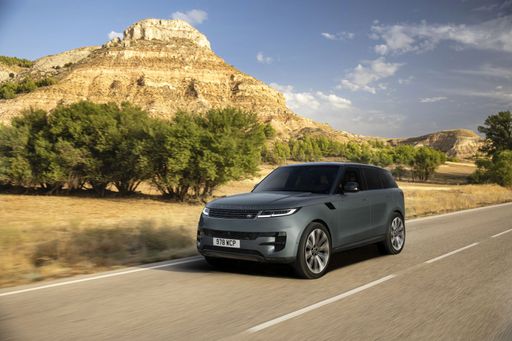
Land Rover Range Rover Sport
Jeep Wrangler
The Jeep Wrangler wears its go-anywhere attitude on its boxy shoulders, with exposed hinges, a removable top and a look that practically dares the tarmac to get in its way. Inside it’s simple and tough-minded, ready to swallow muddy boots and weekend gear, so if you crave honest off-road thrills rather than refined suburbia polish, the Wrangler is your unapologetic partner in adventure.
details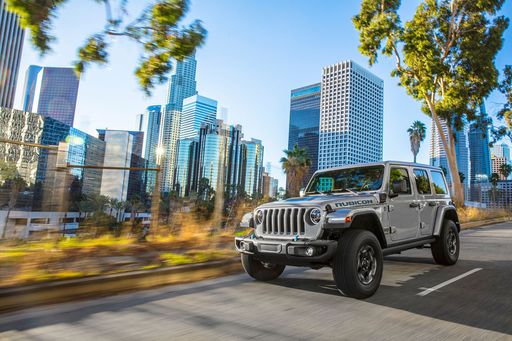
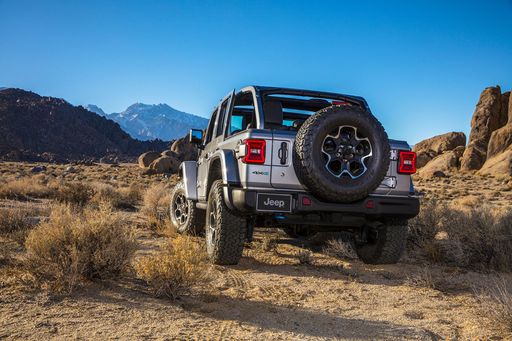
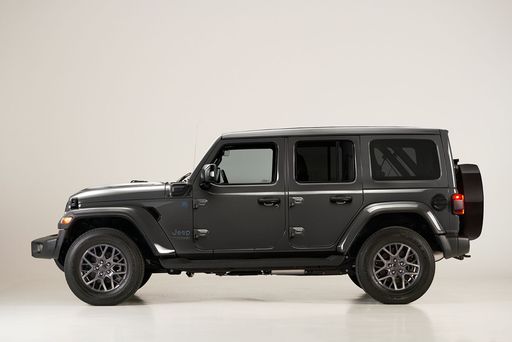
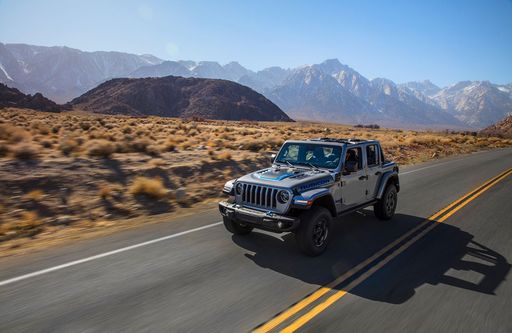
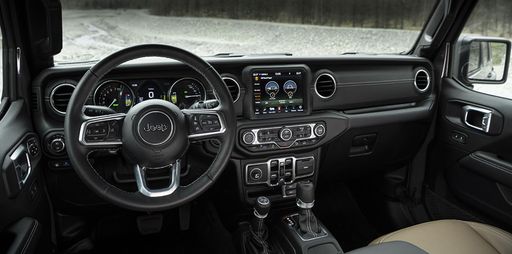
Land Rover Range Rover Sport
The Range Rover Sport pairs unapologetic presence with genuine capability, looking like it belongs on a red carpet while quietly promising to tackle rough tracks when called upon. Inside, the cabin pampers with plush materials and thoughtful tech, making it an irresistible choice for buyers who want luxury, confidence and a touch of adventure.
details
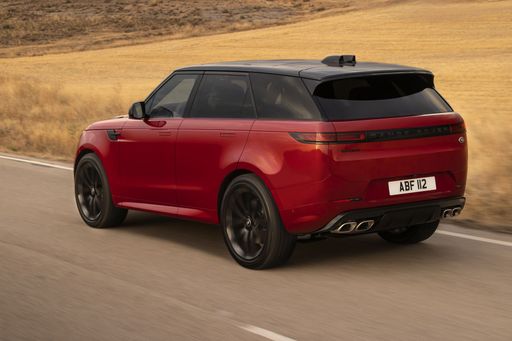
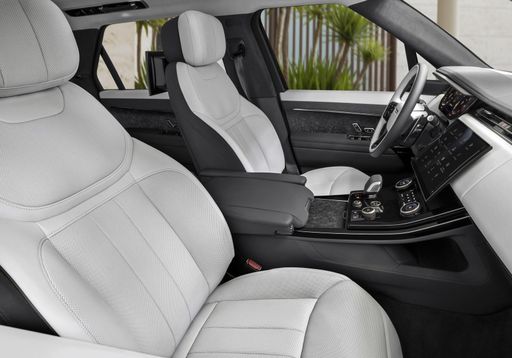
Costs and Consumption |
|
|---|---|
|
Price
60800 - 62500 £
|
Price
78600 - 175700 £
|
|
Consumption L/100km
11.1 - 11.9 L
|
Consumption L/100km
2.7 - 11.7 L
|
|
Consumption kWh/100km
-
|
Consumption kWh/100km
-
|
|
Electric Range
-
|
Electric Range
116 - 118 km
|
|
Battery Capacity
-
|
Battery Capacity
-
|
|
co2
250 - 269 g/km
|
co2
61 - 266 g/km
|
|
Fuel tank capacity
-
|
Fuel tank capacity
90 L
|
Dimensions and Body |
|
|---|---|
|
Body Type
Off-Roader
|
Body Type
SUV
|
|
Seats
5
|
Seats
5
|
|
Doors
-
|
Doors
5
|
|
Curb weight
1938 - 2028 kg
|
Curb weight
2390 - 2810 kg
|
|
Trunk capacity
533 L
|
Trunk capacity
647 L
|
|
Length
-
|
Length
4970 mm
|
|
Width
1894 mm
|
Width
2043 mm
|
|
Height
-
|
Height
1814 mm
|
|
Max trunk capacity
-
|
Max trunk capacity
1491 L
|
|
Payload
546 - 556 kg
|
Payload
640 - 830 kg
|
Engine and Performance |
|
|---|---|
|
Engine Type
Petrol
|
Engine Type
Plugin Hybrid, Petrol MHEV, Diesel MHEV
|
|
Transmission
Automatic
|
Transmission
Automatic
|
|
Transmission Detail
Automatic Gearbox
|
Transmission Detail
Automatic Gearbox
|
|
Drive Type
All-Wheel Drive
|
Drive Type
All-Wheel Drive
|
|
Power HP
272 HP
|
Power HP
249 - 635 HP
|
|
Acceleration 0-100km/h
7.60 s
|
Acceleration 0-100km/h
3.8 - 7.7 s
|
|
Max Speed
-
|
Max Speed
290 km/h
|
|
Torque
400 Nm
|
Torque
570 - 800 Nm
|
|
Number of Cylinders
4
|
Number of Cylinders
6 - 8
|
|
Power kW
200 kW
|
Power kW
183 - 467 kW
|
|
Engine capacity
1995 cm3
|
Engine capacity
2997 - 4395 cm3
|
General |
|
|---|---|
|
Model Year
2024
|
Model Year
2025
|
|
CO2 Efficiency Class
G
|
CO2 Efficiency Class
B, G
|
|
Brand
Jeep
|
Brand
Land Rover
|
What drive types are available for the Jeep Wrangler?
The Jeep Wrangler is offered with All-Wheel Drive.
